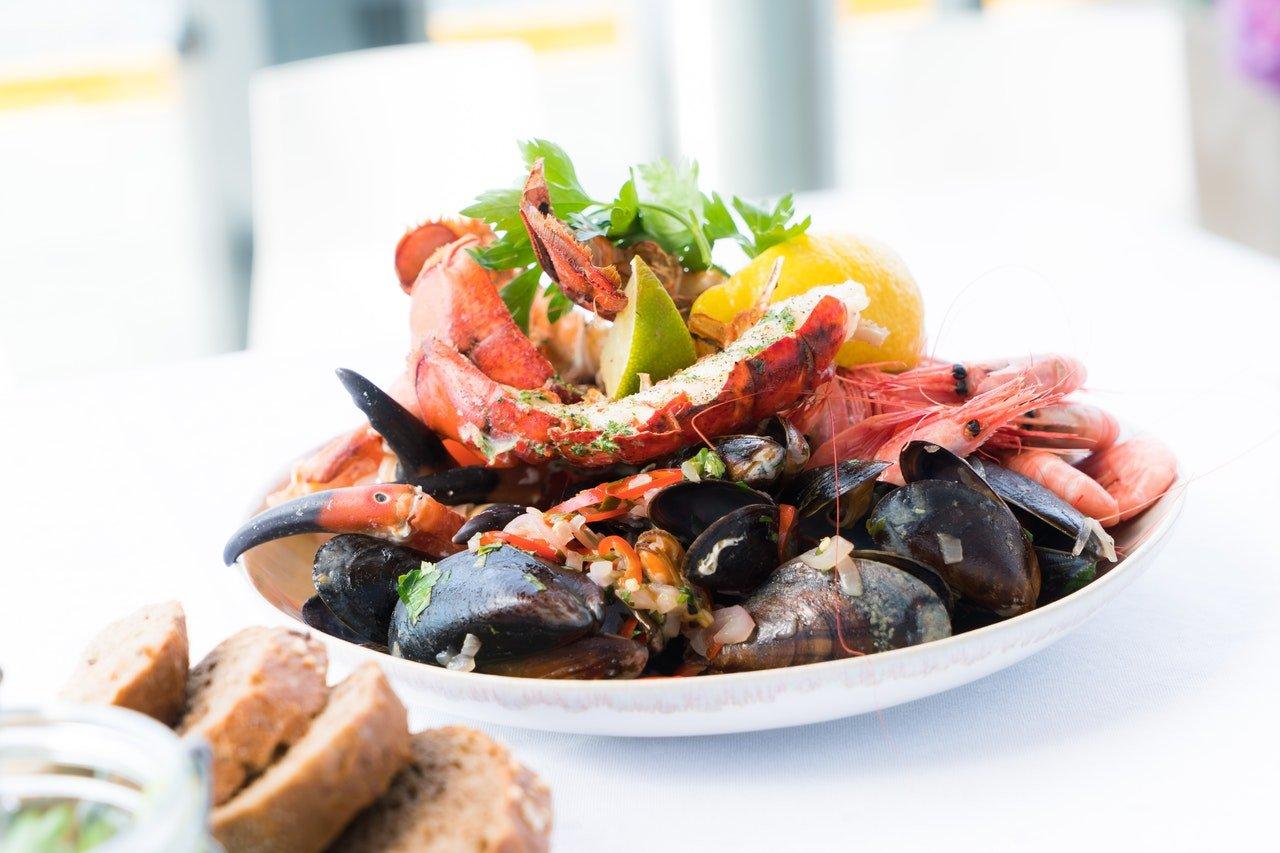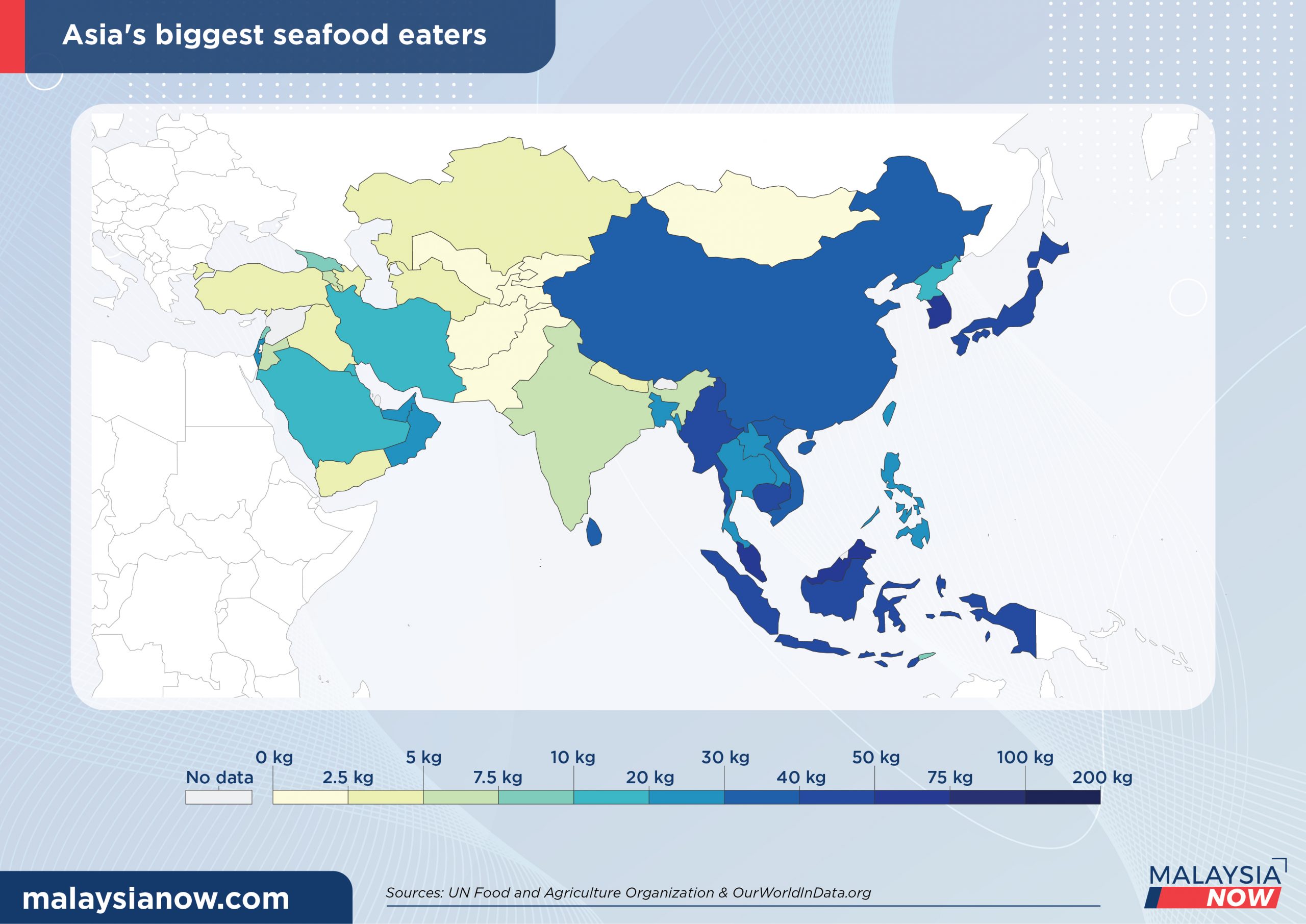There aren’t plenty fish in the sea anymore, Malaysians warned
Overfishing caused Malaysia to lose almost all of its demersal fish stock in less than 60 years.
From plates of crispy sotong goreng and bowls of fish head curry to banana leafs piled with ikan pari bakar and keropok lekor served fresh with chilli sauce, seafood plays a huge role in the lives of Malaysians.
But environmentalists warn that overfishing has jeopardised the future of the country’s marine life, even as the global population of these creatures drops as well.
A report by the Food and Agriculture Organization of the United Nations last year showed that almost 95% of the world’s fish stocks are estimated to be either overfished or fished to their biological limit.
Malaysia itself is in the top 20 countries in terms of captured fisheries, ranking sixth in the Asean region. Malaysia’s fishermen catch nearly one million tonnes of seafood each year, about 40,000 tonnes of which are kept as frozen reserves.
If overfishing continues, experts predict that by 2048, none of the species currently being fished for food will have survived.
Chitra Devi of WWF-Malaysia’s Marine Programme told MalaysiaNow that adopting sustainable measures is key to saving the country’s supply of seafood.
“Sustainable seafood means that the product is harvested within the capability of fish stocks to recover, using methods that minimise the impact on marine species and habitats,” she said.
Malaysia is in the top 20 countries in terms of captured fisheries, ranking sixth in the Asean region.
It also means that seafood is produced through responsible management, emphasising the social well-being of fishermen and coastal communities.
The source of such seafood must also be traceable, Chitra said.
Results from the last trawling surveys carried out by the fisheries department in 2016 show that demersal fish stock – fish that live and feed on or near the bottom of the ocean – has dropped by 88% for the entire country since the 1960s.
In 2019, the fisheries department revealed that Malaysia had lost 96% of its demersal fish stock in less than 60 years due to overfishing.
Overfishing occurs when fish are caught at a rate at which they cannot replenish or sustain their population. This has serious consequences on the environment as well as the livelihoods of those who depend on fishing to survive.
“Fish populations and ocean habitats are severely threatened beyond their capacity to recover from the devastating impacts of overfishing. The livelihoods of fish-dependent communities are also adversely impacted,” Chitra said.
The presence of too many fishing vessels in the ocean; advanced fishing equipment designed to catch more fish; high demand for seafood across the world; unreported and unregulated fishing; and subsidies or support for those in the fishing industry to offset the cost of doing business are all major factors in overfishing.
While making the switch to sustainable seafood may appear inconvenient, Chitra assures that it will contribute to a positive change.
She envisions a “domino effect” throughout the seafood supply chain, with incentives for fishermen, aquaculture farmers, retailers, hotels and restaurants to produce and sell sustainable seafood.
“This will contribute to strengthening food security, livelihoods and the economy while preserving fish stocks and their natural environment,” she said.
Less seafood
She urged people to play their part by buying and consuming seafood responsibly.
“Refrain from buying juvenile or baby fish. If a fish looks abnormally small, it may be a juvenile.
“We avoid eating baby fish because we need to give them time to mature so that they can populate to increase in numbers. If we eat them when they are too young, they don’t have a chance to repopulate.”
She also suggests obtaining seafood from sustainable sources and eating less of it by incorporating more fruits, vegetables and legumes in one’s daily diet.
“By eating less seafood, we are lessening our seafood demand and hence contributing towards lessening the pressure of overfishing.”
Subscribe to our newsletter
To be updated with all the latest news and analyses daily.

